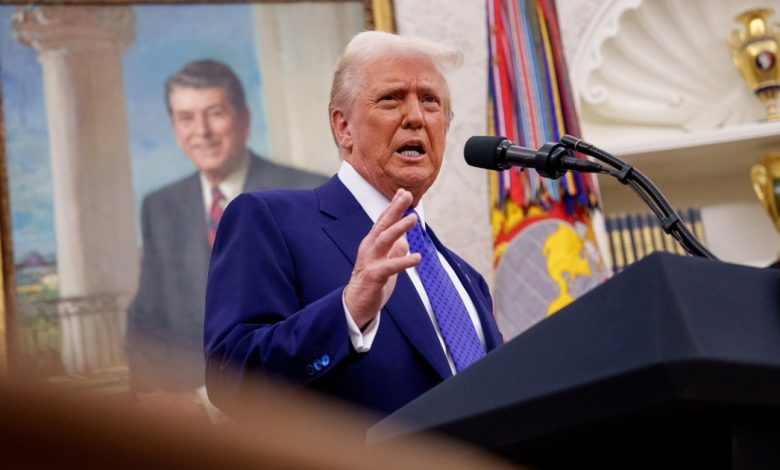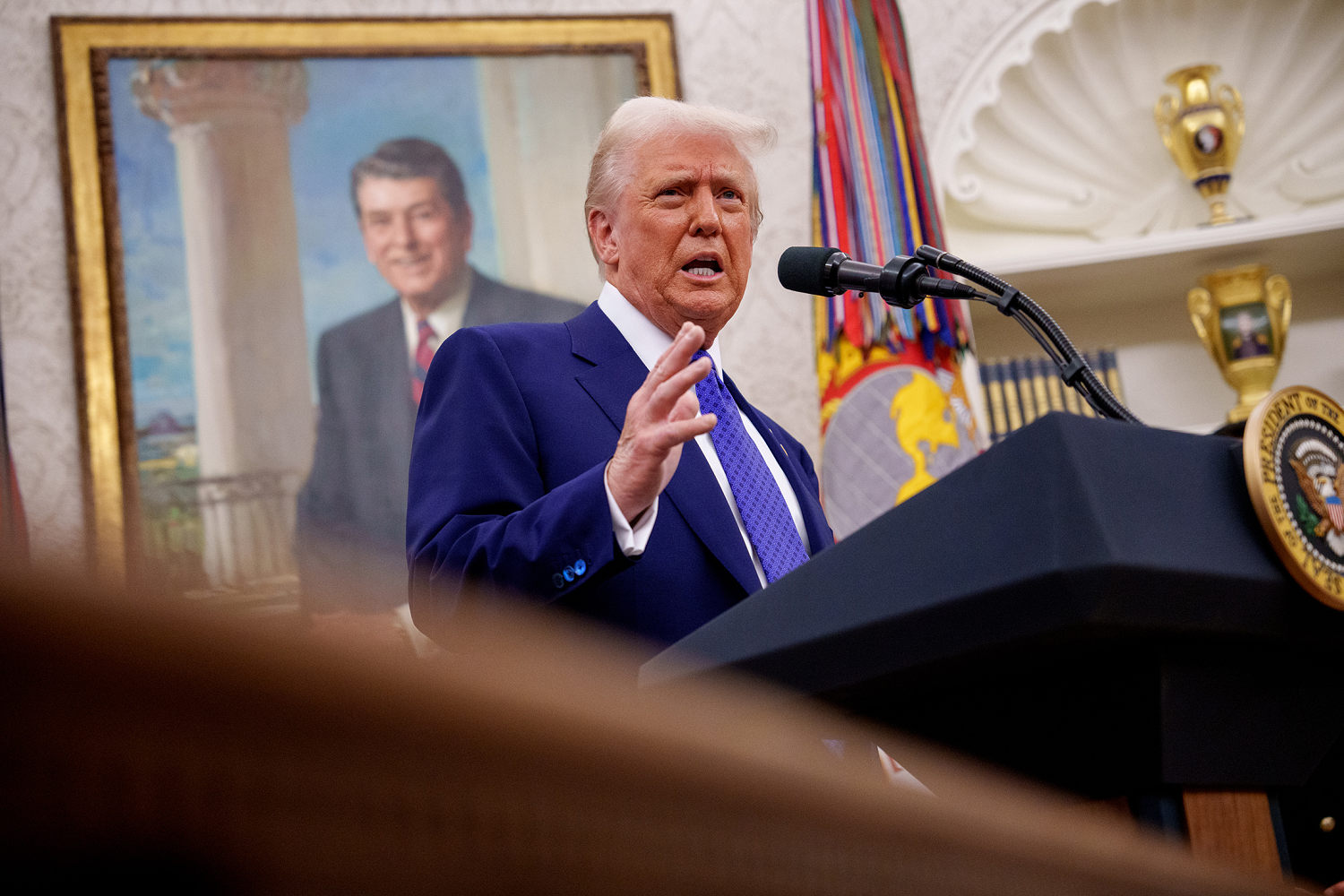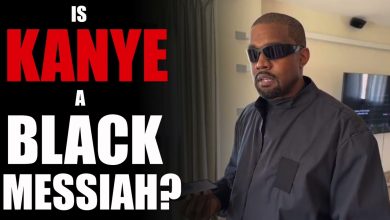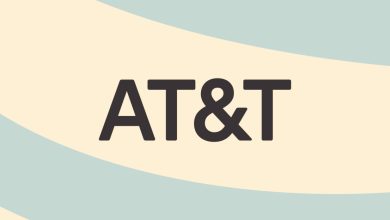Trump announces plan to impose ‘fair and reciprocal’ tariffs against American trading partners, including allies


President Donald Trump signed a memorandum Thursday calling for “fair and reciprocal” trade tariffs on all major U.S. trading partners, including longtime allies.
The memo calls on Commerce Secretary Howard Lutnick and Jamieson Greer, Trump’s official global trade representative, to assess within 180 days on a country-by-country report whether “remedies” that ensure reciprocal trade relations are necessary. Russ Vought, Trump’s nominee to head the powerful Office of Management and Budget, will likewise submit a report within that time frame on the fiscal impact of instituting the measures.
In a call with reporters in advance of the memo, White House Senior Counselor for Trade and Manufacturing, Peter Navarro, said major exporting nations of the world had created a “pernicious, trillion-dollar” trade deficit with the U.S. He singled out the European Union’s value-added tax, which he said makes American goods three-times more expensive.
“No wonder Germany sells eight-times as many cars to us as we do to them,” Navarro said. “President Trump is no longer going to tolerate that.”
To date, Trump has implemented only one set of tariffs he has announced: An additional 10% levy against Chinese imports on top of existing duties. A 25% duty on steel and aluminum imports announced this week, as well as 25% duties on imports from Canada and Mexico that Trump suspended, would not go into effect until the first week of March.
Some investors and business groups have pushed back on Trump’s tariff push, saying they are likely to raise prices for U.S. consumers, though there remains disagreement about their ultimate lasting effect on the U.S. economy.
Ford executives said recently that the automaker would be dramatically affected by levies on Canada and Mexico, and that more broadly they “would burrow a hole in the US industry that we have never seen.”
A Feb. 3 report by the Brookings Institution estimated tariffs could lead to as many as 177,000 job losses in the U.S.
On the other hand, JP Morgan CEO Jamie Dimon said that if they improve national security or result in concessions more favorable to the U.S., the tariffs would be worth the price.
“If it’s a little inflationary but it’s good for national security, so be it. I mean, get over it,” Dimon said during an interview at the World Economic Forum in Davos, Switzerland last month.
In remarks on Capitol Hill this week, Fed Chair Jay Powell sidestepped the tariffs issue, even as many economists say their imposition could ultimately affect interest rates if they cause economic activity to slow, or prices to increase.
“It’s not the Fed’s job to make or comment on tariff policy,” Powell said. “That’s for elected people and and it’s not for us to comment.”




